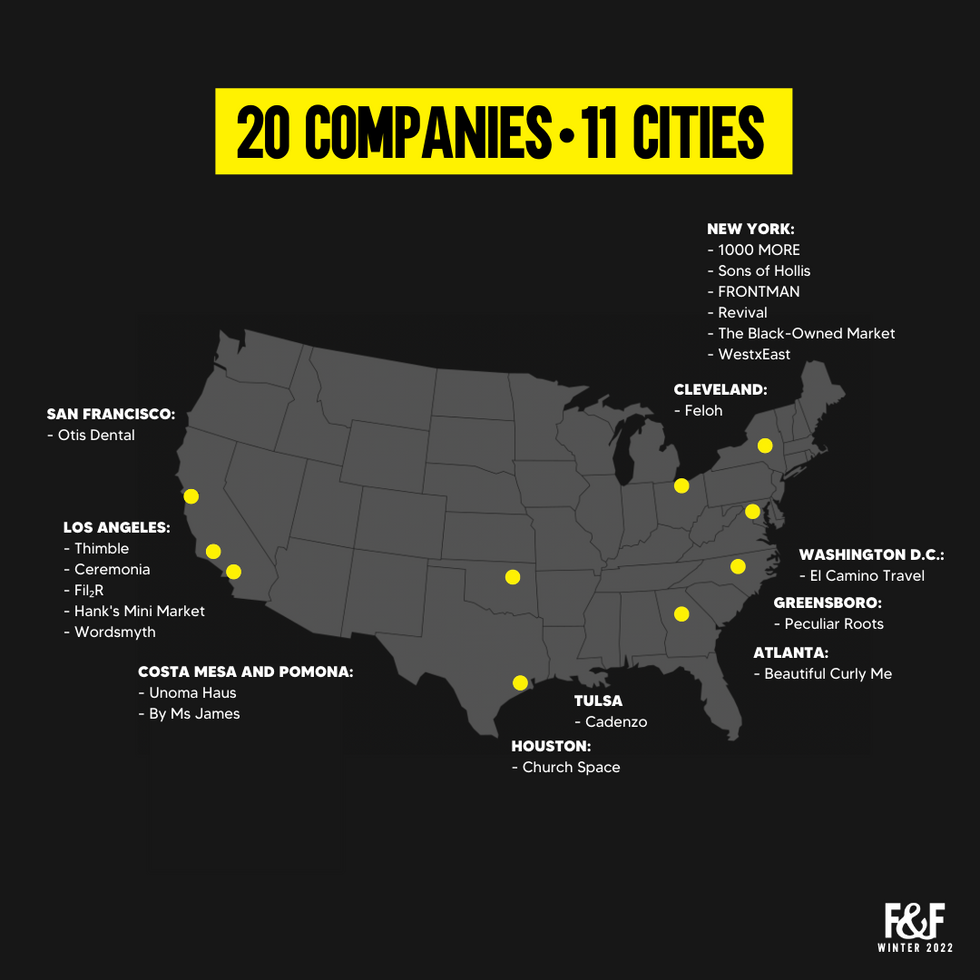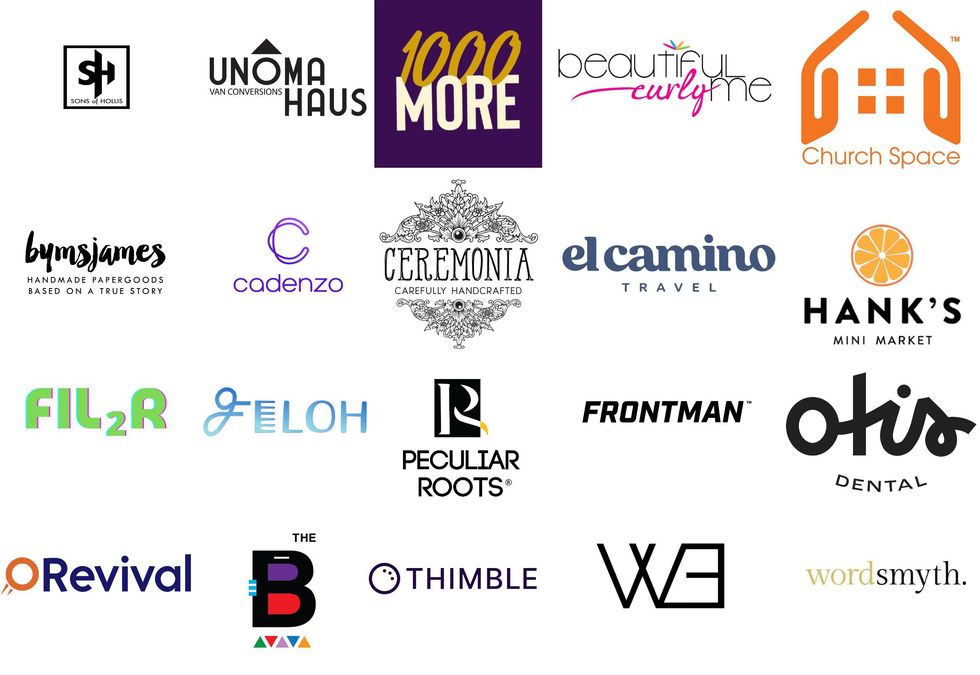With New ‘Friends & Family’ Program, Grid110 and Slauson & Co. Want to Level the Startup Playing Field
Before pitching to investors and venture capital firms, some founders will scrape together capital from people they know—a category of early-stage funding known as the “friends and family” round.
But most founders—especially those from communities that are underrepresented in tech—don’t have access to such a moneyed personal network. For those without backing from friends and family, getting that initial investment can be a grueling, sometimes impossible, task.
Grid110, a Los Angeles-based nonprofit, wants to help level the playing field.
The incubator launched its first national “Friends & Family” cohort this month for 20 early-stage startups through a partnership with Slauson & Co., an early-stage venture capital firm based in L.A. and focused on economic inclusion.
“We felt that there was an opportunity to kind of reframe this concept of ‘friends and family,’ and not just from a capital standpoint,” Grid110 CEO Miki Reynolds told dot.LA. “The capital is very much needed, but there’s also this access to networks and resources and education.”
Neither Slauson nor Grid110 will take equity in the 20 startups. Instead, they’re giving each founder a $20,000 non-dilutive cash grant, with the chance to earn more throughout the 12-week virtual program. The accelerator will provide the cohort’s entrepreneurs with mentorship and coaching from executives including Sequoia Capital partner Jim Goetz, former TaskRabbit CEO Stacy Brown-Philpot and Jonah Peretti, Buzzfeed’s co-founder and CEO.

Geotz, Ron Conway of San Francisco-basd seed fund SV Angel, the Annenberg Foundation and the Schultz Family Foundation all donated capital to finance the cohort. The program received nearly 600 applications from 38 states, making it Grid110’s first national cohort. It is also an exceptionally diverse cohort; each company has a founder who identifies as Black, Latinx, Asian or Pacific Islander, while 75% have a woman founder.
“There’s so much under-accessed value in some of these communities that, if given the right investment and guidance, you can really see the return a lot of VCs are looking for,” said Kibi Anderson, whose startup Wordsmyth—which helps media, film and advertising firms hire writers of color—is one of five L.A.-based companies in the program.
Not every member of Grid110’s cohort is necessarily tech-focused. Other L.A. companies include the South L.A. grocery market Hank’s Mini Mart and Thimble, a brand of numbing patches designed to reduce patients’ pain and anxiety during procedures involving needles.
“There’s a lot of pressure to raise from VCs,” said Thimble CEO Manju Dawkins, whose company raised pre-seed funding late last year. “That’s good for a lot of companies, that may be good for us, but it’s difficult.”
A look at the statups in Grid110's 2022 cohort
Here are the startups in the Friends & Family Winter 2022 cohort:
- The app 1000 MORE helps users track upcoming bills, contact their local representatives and crowdfund advocacy efforts in disenfranchised communities.
- Beautiful Curly Me designs toys and accessories and sells books and other content for young Black and brown girls.
- The paper goods company By Ms James sells greeting cards, art prints, posters and other home and office decor.
- Cadenzo’s web-based platform connects local musical artists to venues where they can set up bookings.
- CEREMONIA is a lifestyle brand selling handcrafted home decor and accessories using natural and locally-sourced materials.
- The online marketplace Church Space helps churches earn income by renting out their buildings as on-demand event, worship and meeting spaces.
- El Camino is a travel company offering group tours for women.
- FELOH [Fell•Oh] is an online beauty community and digital marketplace for inclusive beauty brands.
- Fil2R makes sustainable, reusable water filters for home use.
- Gen Z-focused FRONTMAN sells cosmetics and skincare for men.
- Hank’s Mini Mart is a family-owned market in South L.A.’s Hyde Park using food and art to engage with the local community.
- Otis Dental offers subscription-based oral care that lets customers make impressions of their teeth at home for custom night guards and whitening kits.
- The beauty brand Peculiar Roots sells products for natural hair.
- Revival helps users buy back their debt at the same rates that they were sold to debt collection agencies.
- The men’s grooming brand Sons of Hollis sells grooming tools and haircare products for men with coarse, curly, kinky or wavy hair.
- The Black-Owned Market is a curated online marketplace to shop and interact with Black-owned brands.
- THIMBLE develops anxiety- and pain-reducing products like numbing patches for common needle procedures.
- Unoma Haus is designing and building off-grid van conversions for rent or purchase.
- Direct-to-consumer design service WESTxEAST makes custom-fit South Asian clothing.
- Wordsmyth is a tech platform enabling companies to hire writers of color, as well as an online community for those writers to connect with one another.
- How Can L.A. Tech Promote More Diversity in Its Ranks? - dot.LA ›
- Grid110's Miki Reynolds Talks About Diversity in L.A.'s Tech Scene ... ›
- Grid110's Miki Reynolds Can Help Founders Get Their Footing - dot ... ›
- PledgeLA, GRID110 Seeking Second Cohort of Black and Latinx Startup Founders in LA ›
- Spatial Labs Founder Iddris Sandu on the Bear Market - dot.LA ›


